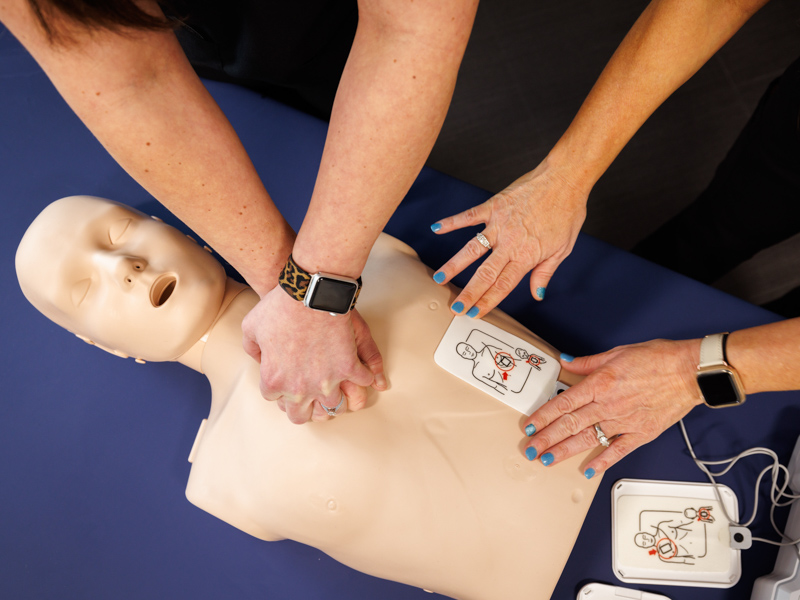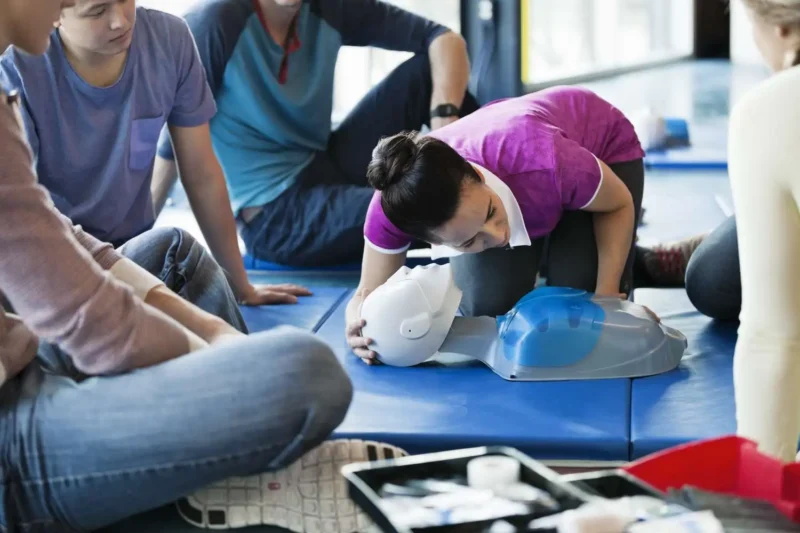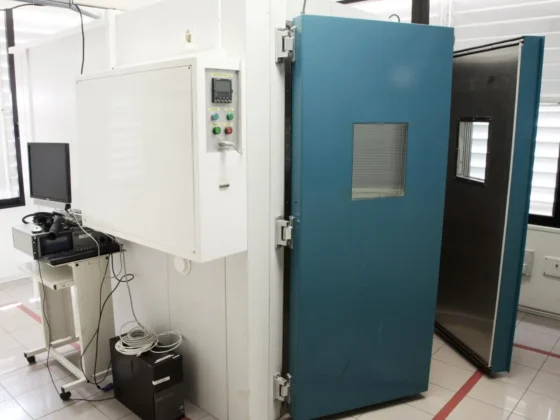We often take for granted the importance of knowledge and learning, especially when it comes to life-saving techniques like CPR, AED, and First Aid. Knowing how to administer these lifesaving measures can make a huge difference in an emergency.
From knowing where to locate the necessary supplies to having the confidence that you can respond efficiently — being prepared is essential. Having sound knowledge of basic medical skills and practices can mean the difference between life and death, so taking the time to learn about them is invaluable.
Whether you are a professional first responder or simply someone looking out for their loved ones, understanding CPR AED, and First Aid basics is vital.
The Power of Knowledge: Leveraging Information to Enhance Performance

The power of knowledge can be a powerful tool when it comes to enhancing performance and learning CPR, AED, and First Aid. Knowledge is the cornerstone for developing skills that enable us to take action in emergencies.
Knowing how to perform life-saving techniques such as cardiopulmonary resuscitation (CPR), use of an automated external defibrillator (AED), or administering first aid can prevent accidents from becoming disasters. When faced with an emergency, having the right knowledge at our fingertips could mean the difference between life and death.
Taking time to learn these important lifesaving skills can help ensure preparedness should we ever need them. With more people taking proactive steps towards learning CPR, AEDs, and First Aid every day – even if they may never have to use this knowledge – society will become even safer for all involved!
The Incredible Benefits of Learning CPR, AED, and First Aid

Learning CPR AED and First Aid is one of the most important things a person can do to save lives in an emergency. These lifesaving skills provide individuals with the knowledge and ability to respond quickly in any situation, potentially saving someone’s life or preventing further injury.
By taking courses in CPR AED and First Aid, you will gain invaluable skills that could be used in emergencies at home, work, or school. The benefits of learning these lifesaving techniques far outweigh the effort required to learn them. It can give you peace of mind knowing that if an accident happens, you are equipped with the right tools to help during a crisis.
Additionally, having this skill set makes you more valuable in today’s world – employers look favorably on those who know how to react during medical emergencies because it shows they are responsible and reliable employees. Moreover, many organizations require certification as part of their safety protocol which makes certifications beneficial when applying for jobs or volunteer positions as well as gaining entrance into certain professions such as nursing and teaching.
Not only does learning CPR AED and First Aid offer tangible benefits but there is also a great sense of satisfaction that comes from being able to help others should they need assistance due to a medical emergency; it gives people confidence by showing them that they possess meaningful skills that could make all the difference between life and death in times when seconds count towards making a difference!
Understanding the Relevance of Lifesaving Skills in Emergencies

Knowing lifesaving skills such as CPR, AED, and first aid can make all the difference during an emergency. In a life-threatening situation, understanding how to react could be crucial in saving someone’s life.
Having one or more of these skills empowers people to act quickly, efficiently, and responsibly when faced with a medical emergency. Knowing what steps to take to keep oneself safe can also provide peace of mind for both those experiencing the danger and their loved ones who may not be present at the time.
Being able to assess potential risks and knowing how best to respond is essential for anyone looking out for themselves or another individual in times of crisis. A common misconception among many individuals is that learning lifesaving skills is complex and requires extensive training – but this isn’t true! While it’s true that having some prior knowledge before taking courses on these topics can help make them easier, there are many programs available designed specifically so that everyone has access to quality instruction regardless of experience level.
With good preparation, mastering CPR/AED/First Aid techniques isn’t difficult; it just takes dedication and practice so you’re ready if an unexpected situation arises where these skills are needed without hesitation. The importance of being aware of lifesaving measures cannot be emphasized enough: they give us confidence that we have done everything within our power should someone require our assistance during an emergency; they empower us with know-how so we feel secure in potentially dangerous situations; they allow us the opportunity to support family members or friends if need be; they ultimately save lives! Understanding the relevance of Lifesaving Skills in Emergencies makes sure everyone remains educated about this vital topic—a gift no one should deprive themselves of enjoying!
Conclusion
Knowledge of CPR, AED and first aid can make a life-saving difference in an emergency situation. It is important for everyone to take the time to learn these lifesaving techniques.
With the right skills and knowledge, you can be prepared to respond quickly and effectively when someone needs help. To get started on your journey towards becoming certified in CPR, AEDs, or First Aid visit website today so you are ready if an emergency arises.


